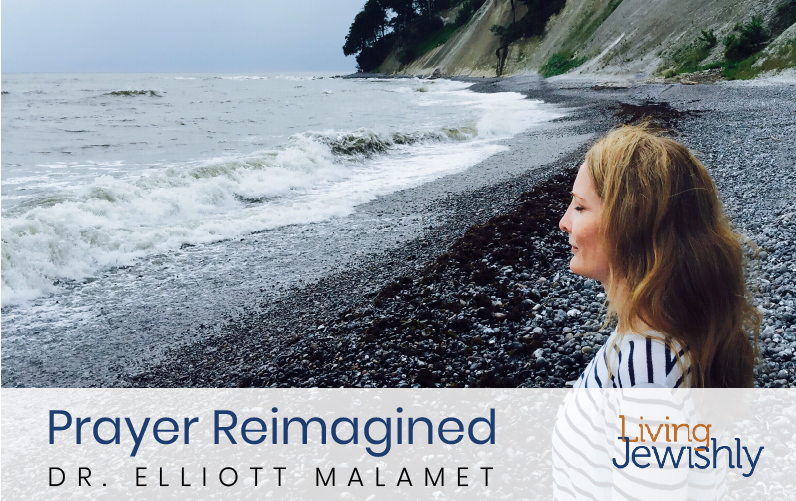A time of pandemic gives us the rare opportunity, as a species, to review the lives we lead and the way we spend our time. As Jews, this also means that we can rethink our most basic institutions and practices, including the art of prayer, an activity that has been tragically stifled by mundanity, irrelevance and an inaccessible, almost cult-like atmosphere. There has never been a better time to completely rethink and reboot the act of prayer, so that it speaks to all human beings where and how they live.
What does it mean to pray? The ancient Jewish sages defined prayer, specifically, as “heart work.” And of the two, the key word here is not the emotional, sentimental one. It’s the drab, every day one.
The key to understanding prayer is to know that it is work.
We hold on to certain myths in our culture that are hard to shake. One is that art is just about inspiration, that writers and musicians and painters just wait for the muse to strike and, when it does, a torrent of picture-perfect material emerges. But art, as well as prayer, is a process that is both arduous and poetic.
One of the great works of modern literature, Madame Bovary, was finally completed by Gustave Flaubert in 1856. I say “finally” because Flaubert spent five years writing and rewriting the novel and, as Brian Simpson notes, “he frequently wrote 12 hours a day, beginning in the late afternoon and continuing through the night. He recited the words aloud, bellowing in a full-throated roar. He once complained that his throat hurt — from too much writing. Flaubert rewrote each page of Madame Bovary at least four or five times, and many a dozen times.”
And when he thought he was finally finished, he looked at his opening sentence, and in his bones felt it was not right, and so he decided to change it. So, after five years, and literally thousands of handwritten pages (no word processing program; no Cloud) the endless number of words and sleepless nights led him to his very first sentence. And so, he began again.
Now I am not suggesting that prayer is like writing Madame Bovary, or that it should be, but rather, that anything worth doing in this world should call on the very best of our abilities, not to impress anyone else but to create the fullest richest life that we can muster in our allotted time.
And prayer is no different. Prayer is work.
You might argue, quite understandably, that you are just not interested in harnessing those particular abilities, that making prayer part of your daily existence is about the last thing for which you might have voted. And you may feel that way for a whole variety of reasons.
Perhaps certain images arise when somebody offhandedly mentions prayer, images that are not comforting but scary, not exciting but debilitating. For many, the word “prayer” conjures up scenes of a great divide – there are those “religious people’ out there who believe in God and judge everyone else.
And more to the point: Me? Pray? Pray to a what? A God? (you must be kidding!).
The concept of prayer inherently assumes on my behalf that there is someone to whom to pray. And if even if I were to engage in this “conversation”, the words have been chosen for me. I am expected to read from a script that is archaic and repetitive, invites guilt or says to the Big (Wo)Man how great He or She or It is, at the rate of a thousand times a minute.
What could tediously recycling those names – Hashem or Jesus or Allah or Vishnu –over and over again, like some kind of hypnotic spell, really do for me, when my days are filled with stress and my nights with fear about the future?
Sorry, you think, no, that is not my life. I have friends. I have a therapist. Why do I have to talk to the air and mindlessly send formulaic words out into space?
Or perhaps you do pray, even regularly, but it is just a habit you fell into, you don’t mind praying, it opens up social pathways, offers structure and maybe you like some of the tunes, and there is food at the end and maybe even some liquor. But honestly, it’s not something you think about all that much. Existentially vital? Inspirational? Irreplaceable? No, that’s not the point. It’s just something you do.
And you might plausibly argue that even the art comparison I raised earlier is not really analogous. With art, all that work can produce something tangible, something beautiful. What does prayer produce? And for whom?
What about meditation, which is something I can understand, even if it is a bit weird? Just sitting and staying silent, a refuge from the world of noise. Isn’t meditation like prayer, except quieter and with a lot more breathing?
Not really.
Meditation, which I have benefited from, ironically pressures me to let things go, follow my breath, not to hang on to what I think – in a sense, to be detached.
Though stillness may accompany prayer, prayer is not about being still.
Prayer is about being heard. It is a focused form of dialogue in front of an imagined other, in which we get centered around the things that are most important to us as human beings, both in large and infinitely small ways.
When you pray—in some ways like when you write–you imagine someone who listens. Judaism calls that other God, and imagines us praying not to, but in front of, God. But prayer does not rely upon you believing in a divine being, whatever or whomever that Being might be.
Prayer does not disappear just because God does or seems to. Whether or not you use the word God, or its synonyms (the breath of life, the unbounded spirit, the universal force), prayer is still about the conversation you have in front of a listener who does not answer. Perhaps the most important listener to our prayers is ourselves. It is what we do with our own words that counts the most.
And so, in the weeks and months to come, I hope you join me as we explore prayer for everyone. I will not be talking about viruses or politics or media figures or the grey beard in the sky for that matter, but about the power of words to alter ourselves, our view of the world we live in, and the people with whom we share it.
Next time we will look at two pieces of prayer, from Rabindranath Tagore and Mar bar Ravinah, and talk about how we can use them to make each day a little bit better than the day before. See you then.
Please send me your thoughts, ideas and questions at emalamet@gmail.com


0 Comments